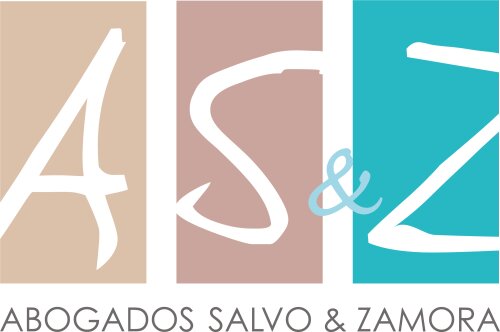Best ADR Mediation & Arbitration Lawyers in Valparaíso
Share your needs with us, get contacted by law firms.
Free. Takes 2 min.
List of the best lawyers in Valparaíso, Chile
About ADR Mediation & Arbitration Law in Valparaíso, Chile
Alternative dispute resolution - ADR - refers to processes that resolve disputes outside ordinary court litigation. The two most common ADR methods are mediation and arbitration. In Valparaíso, as in the rest of Chile, ADR is widely used for commercial, civil, labor, construction and family-related disputes. ADR offers parties faster, more flexible and generally more private ways to resolve conflicts than traditional court proceedings.
Chilean practice supports party autonomy - parties can agree on the procedure, the seat and the language of ADR proceedings, subject to limits set by public order and mandatory law. Courts have a supportive role - enforcing arbitration agreements, granting interim measures when appropriate, and recognizing and enforcing arbitral awards under national law and international treaties.
Why You May Need a Lawyer
Seeking legal advice can be crucial at several stages of ADR. A lawyer experienced in mediation and arbitration can help you in these common situations:
- Drafting and reviewing ADR clauses in contracts to ensure enforceability and to set clear rules on seat, language, governing law, tribunal composition and applicable procedure.
- Advising on whether a dispute is suitable for mediation or arbitration - or whether court action is preferable - taking into account costs, timing, confidentiality and enforceability.
- Selecting and appointing arbitrators or mediators and challenging appointments when necessary.
- Preparing and filing arbitration notices, statements of claim or responses, and managing evidence and witness preparation.
- Seeking interim relief - such as provisional measures or court-ordered conservatory actions - to preserve rights and assets while ADR proceeds.
- Enforcing or resisting enforcement of arbitral awards domestically or across borders, including handling annulment challenges or recognition under the New York Convention.
- Drafting and implementing settlement agreements reached in mediation so settlements are binding, clear and enforceable.
Local Laws Overview
Key legal features relevant to ADR in Valparaíso and Chile generally include the following principles:
- Party autonomy - Parties are free to agree on arbitration and mediation procedures, subject to mandatory rules and public order.
- Arbitrability - Many civil and commercial disputes are arbitrable. Matters that touch on public interest, criminal law or certain family-law rights may be non-arbitrable.
- Court support - Local courts can intervene to support arbitration, for example by ordering interim measures, assisting with evidence in limited cases, or compelling compliance with arbitration agreements.
- Recognition and enforcement - Chile is a party to international conventions that facilitate recognition and enforcement of foreign arbitral awards. Domestic courts routinely implement enforcement processes for awards rendered under valid arbitration agreements.
- Confidentiality - ADR proceedings are usually confidential by practice and by agreement between the parties, although absolute confidentiality may be limited if a court must examine the award for enforcement or annulment proceedings.
- Procedural rules - Parties may adopt institutional rules offered by local or international arbitration centers, or agree on ad hoc procedures. Local arbitration centers and chambers provide institutional rules designed to operate within Chilean law.
- Mediation framework - Mediation is promoted as a voluntary, conciliatory process. In some types of disputes - such as certain family matters or neighborhood conflicts - mediation may be required or encouraged before litigation.
Frequently Asked Questions
What is the difference between mediation and arbitration?
Mediation is a voluntary, facilitative process where a neutral mediator helps parties negotiate a settlement. The mediator does not impose a decision. Arbitration is a private adjudication where an arbitrator or tribunal hears evidence and issues a binding decision - the arbitral award - which can be enforced by courts.
Are arbitration awards binding in Chile?
Yes. Arbitral awards issued under a valid arbitration agreement are binding and can be enforced by Chilean courts. Foreign awards recognized under international conventions can also be enforced, subject to limited grounds for refusal under applicable treaties and national law.
Do I need a lawyer to go to mediation or arbitration?
You are not legally required to have a lawyer, but legal representation is strongly recommended. Lawyers help with case preparation, legal strategy, drafting settlement or arbitration clauses, presenting evidence and protecting your rights during interim measures and enforcement stages.
How do I start an arbitration or mediation in Valparaíso?
Start by reviewing any agreement between the parties to determine the chosen ADR mechanism, seat and rules. For arbitration - serve a notice of arbitration according to the agreed rules or institutional procedure. For mediation - agree on a mediator and the place and format of the session. If there is no agreement, counsel can advise on the best institutional forum or on filing a court petition when necessary.
How long do ADR processes typically take?
Timelines vary by case complexity, number of parties and the chosen procedure. Mediation can take from a single session to a few weeks. Arbitration is generally faster than court litigation but may take several months to over a year, depending on the scope, evidentiary phase and whether complex interim measures or expert evidence are required.
How much does ADR cost?
Costs depend on the process - mediation is usually less expensive than arbitration. Arbitration costs include arbitrators fees, administrative fees if using an institution, legal fees and possible expert costs. Parties should obtain fee schedules from the chosen arbitration center and discuss fee allocation in agreements or rules.
Are mediation sessions confidential?
Mediation is typically confidential by agreement between the parties and mediator. The degree of confidentiality can be negotiated and documented. Confidentiality may be limited when a court must review a settlement for enforcement or when disclosure is required by law.
Can I challenge an arbitral award in Chilean courts?
Yes, there are limited grounds for annulment or refusal of enforcement, such as lack of jurisdiction, serious procedural defects, or conflicts with public order. Challenge procedures are narrow to preserve the finality of awards - you should consult a lawyer promptly if you intend to contest an award.
Are foreign arbitral awards enforceable in Valparaíso?
Foreign awards can be enforced in Chile in accordance with Chilean law and international conventions that Chile is party to. Enforcement typically requires a court procedure to recognize the award, after which collection procedures may follow. Grounds for refusal are limited and usually procedural or public-order related.
How do I choose an arbitrator or mediator?
Consider expertise in the subject matter, neutrality, reputation, language skills and availability. Parties can choose institutional panels or agree on ad hoc selections. Lawyers can assist in proposing qualified candidates and managing the appointment process in line with the arbitration clause or institutional rules.
Additional Resources
Below are local and national bodies and organizations that provide ADR services, guidance or support in Valparaíso and Chile:
- Ministry of Justice and Human Rights - oversees legal policy and may provide information on ADR frameworks and public programs.
- Poder Judicial - regional courts, including the Corte de Apelaciones de Valparaíso and local Juzgados de Letras, which interact with ADR through support and enforcement functions.
- Chamber of Commerce of Valparaíso - many chambers maintain arbitration and mediation centers or lists of neutrals for commercial disputes.
- Centro de Arbitraje y Mediación de la Cámara de Comercio de Santiago - a major institutional provider of arbitration and mediation services used throughout Chile.
- University ADR centers - several Chilean universities operate arbitration and mediation centers offering training, mediation services and rosters of neutrals.
- Local Bar Associations - Colegio de Abogados de Valparaíso and other professional associations can help locate experienced ADR lawyers and neutrals.
- Industry-specific arbitration bodies - for construction, maritime or labor disputes there are specialized panels and institutional rules maintained by sector organizations.
Next Steps
If you believe ADR may help resolve your dispute, follow these practical steps:
- Gather documents - collect contracts, correspondence, invoices, expert reports and any clause referring to ADR.
- Review the agreement - check for an ADR clause that sets the seat, rules, tribunal size and governing law. Note any deadlines for initiating proceedings.
- Seek an initial legal consultation - choose a lawyer with ADR experience to assess options, costs and strategy and to advise on whether mediation or arbitration is preferable.
- Consider interim needs - if you require immediate protection of assets or evidence, instruct counsel to seek provisional measures from a court or an emergency arbitrator if the chosen rules allow.
- Select a forum and neutrals - agree on an institutional provider or ad hoc mechanism, and on mediators or arbitrators with relevant expertise.
- Prepare for process - organize factual and legal position, prepare witnesses and experts, and discuss settlement goals and confidentiality provisions with your lawyer.
- Confirm enforcement strategy - if the dispute has cross-border elements, discuss with counsel how to enforce awards in Chile or abroad and whether additional security or guarantees are advisable.
Taking these steps will help you use ADR effectively, protect your rights and work toward a timely, enforceable resolution of your dispute in Valparaíso.
Lawzana helps you find the best lawyers and law firms in Valparaíso through a curated and pre-screened list of qualified legal professionals. Our platform offers rankings and detailed profiles of attorneys and law firms, allowing you to compare based on practice areas, including ADR Mediation & Arbitration , experience, and client feedback.
Each profile includes a description of the firm's areas of practice, client reviews, team members and partners, year of establishment, spoken languages, office locations, contact information, social media presence, and any published articles or resources. Most firms on our platform speak English and are experienced in both local and international legal matters.
Get a quote from top-rated law firms in Valparaíso, Chile — quickly, securely, and without unnecessary hassle.
Disclaimer:
The information provided on this page is for general informational purposes only and does not constitute legal advice. While we strive to ensure the accuracy and relevance of the content, legal information may change over time, and interpretations of the law can vary. You should always consult with a qualified legal professional for advice specific to your situation.
We disclaim all liability for actions taken or not taken based on the content of this page. If you believe any information is incorrect or outdated, please contact us, and we will review and update it where appropriate.









